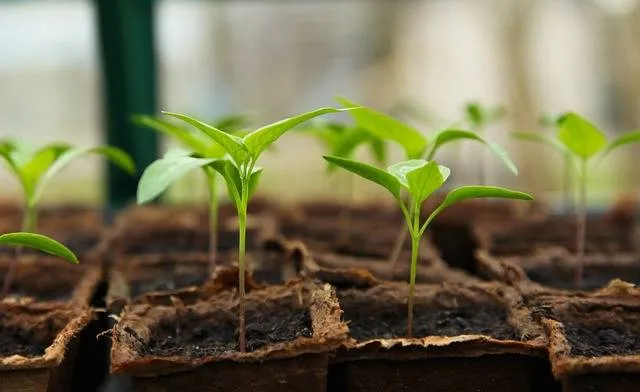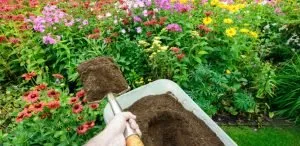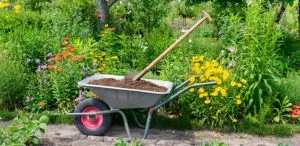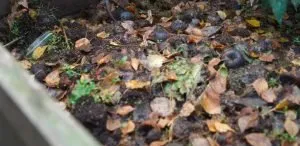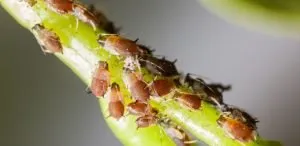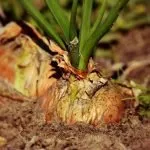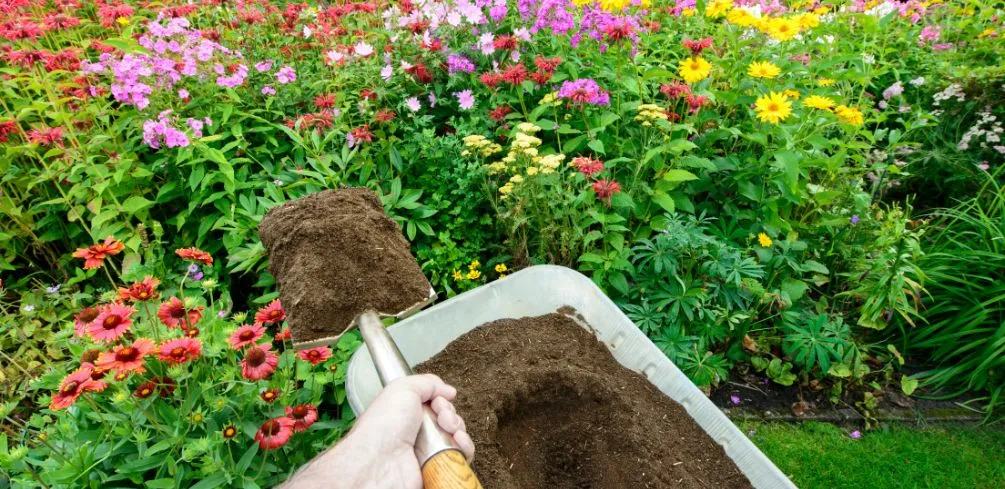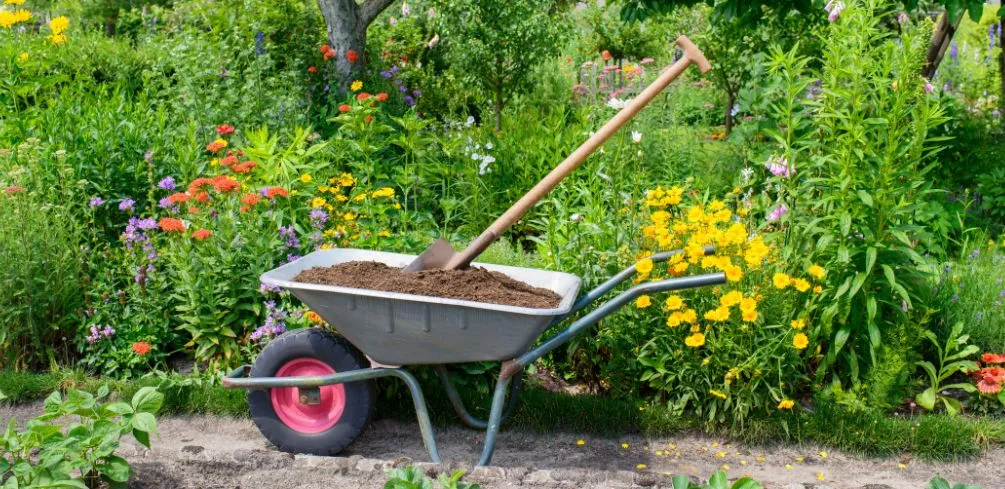Composting is a simple yet effective way to transform food waste into nutrient-rich soil for use in gardens and farms. It’s an age-old practice that has been adopted by both professional and amateur gardeners alike, resulting in healthier plants that are more resistant to disease. This article will explore the benefits of composting food waste and how it can help you grow better plants.
Composting involves breaking down organic material such as fruit and vegetable peels, eggshells, coffee grounds, and other food scraps into a nutrient-dense soil amendment.
The process is powered by microorganisms such as bacteria and fungi that feed on the organic matter, releasing nutrients such as nitrogen, phosphorus, potassium, and calcium, which are essential for healthy plant growth. Compost also helps to improve soil structure, reduce water runoff and prevent erosion due to its ability to hold moisture better than regular soil.
Additionally, composting can reduce the amount of waste sent to landfills while providing valuable resources for your garden or farm. By utilizing this natural process of recycling food waste into a beneficial resource, we can create sustainable practices that benefit our environment while still allowing us to reap the rewards of gardening or farming with healthy soils.
In this article, we will discuss why it’s important to compost food waste, how it can help you grow better plants, and what steps you should take when doing so.
Definition Of Composting
Composting is the process of decomposing organic material, such as food waste, into a nutrient-rich fertilizer. It is an environmentally friendly way to reduce the amount of trash in landfills and create a useful resource. Composting can be done either outdoors or indoors, depending on the size and type of composting system used.
In outdoor systems, food scraps and other biodegradable materials are placed in a bin or container where bacteria and other microorganisms break down the material into compost. Indoor systems use special containers with filters that allow air to circulate while keeping any odors contained.
The end product of composting is an organic soil amendment known as humus. This dark, crumbly material is rich in nutrients that help improve soil structure and provide plants with essential elements for growth. Compost also helps retain moisture in the soil, reducing water usage in gardens and lawns. Additionally, it adds beneficial microbes to the soil, which can help suppress diseases caused by soil-borne pathogens.
Composting provides gardeners with an efficient means of recycling food waste into valuable fertilizer for their plants while providing environmental benefits at the same time. It is easy to set up and maintain, requiring only occasional turning over of the pile to ensure proper aeration and decomposition.
With its many advantages, composting is becoming increasingly popular among gardeners who want to grow healthy plants without relying on chemical fertilizers or pesticides.
Benefits Of Composting Food Waste
Composting food waste offers numerous benefits to both the environment and gardeners. By composting food waste, gardeners can create a nutrient-rich soil amendment that helps plants grow better and healthier.
Composting also reduces the amount of food waste going into landfills, making it an eco-friendly option for disposing of kitchen scraps. In addition, composting food waste helps to improve soil health and fertility, which in turn leads to increased plant growth and better yield.
One of the main benefits of composting food waste is that it introduces essential nutrients into the soil. This helps to improve soil structure, creating a more hospitable environment for root development and water retention. Compost is also great for improving soil aeration, which allows oxygen to reach plant roots more easily and encourages better nutrient uptake from the soil.
Additionally, compost helps to suppress weeds by competing with them for resources such as light, water, and nutrients.
In addition to its environmental benefits, composting food waste can also save gardeners money by eliminating the need to purchase expensive fertilizers or other store-bought amendments. The natural microbes found in compost help break down organic materials more effectively than synthetic additives, resulting in better plant growth over time.
Furthermore, homemade compost requires minimal maintenance and is easy to make with just a few simple ingredients.
Composting can be an effective way to reduce kitchen scrap waste while improving overall soil health and fertility at the same time. By taking advantage of its numerous benefits, gardeners can create a nutrient-rich environment that encourages strong plant growth and higher yields without relying on costly store-bought products or chemicals. As a result, composting provides an eco-friendly solution for disposing of food scraps while promoting sustainable gardening practices at the same time.
How To Compost Food Waste
Composting food waste is an effective way to reduce landfill waste while also providing valuable nutrients to soil and plants. There are several methods for composting food waste, depending on the materials and containers used.
One of the most popular methods of composting food waste is vermicomposting, which uses red worms to break down organic matter. This method is ideal for those with limited space, as it can be done indoors in a small container.
To start vermicomposting, you need a container with a lid, moist bedding material such as shredded paper or coconut coir, red worms, and kitchen scraps. The worms will eat the kitchen scraps and turn them into nutrient-rich compost that can be used in your garden or houseplants.
Another method of composting food waste involves using a traditional outdoor compost bin. This type of bin requires more space than vermicomposting but can produce larger amounts of compost in a shorter time frame.
To create an outdoor compost bin, you will need some organic matter such as leaves and grass clippings, kitchen scraps, air pockets for oxygenation and moisture control (to prevent decomposition from occurring too quickly), and a tarp or lid to keep out pests. Once the ingredients are placed in the bin, they should be turned regularly to ensure that all parts receive adequate oxygenation and that moisture levels remain consistent.
Composting food waste is an easy way to reduce landfill waste while also creating valuable nutrients for plants. Both vermicomposting and traditional outdoor compost bins require different materials and containers but will yield high-quality results if managed correctly. With these methods, it’s possible to recycle household food waste into nutrient-rich soil that helps create healthier plants in your garden or home environment.
Problems You Can Avoid By Composting
Composting food waste can be beneficial for gardeners and farmers alike. By composting, gardeners and farmers can avoid many common problems that can arise from poor soil conditions. Composting helps to reduce or eliminate pests, weeds, and diseases in the soil. It also provides richer soil with more nutrients, making it easier for plants to thrive and become healthier.
The decomposition process of composting helps to break down organic matter into its most basic components, allowing for better absorption of water and nutrients by plants. This improves the overall quality of the soil and helps with weed control as well as avoiding pest infestations. Compost also serves as an organic fertilizer which helps to improve the fertility of the soil and encourages stronger root growth in plants.
Composting is an important part of any successful gardening or farming operation. Not only does it help to create healthier soils that are better able to support plant growth, but it also helps to prevent many types of problems, such as pests, weeds, disease, and nutrient deficiency. By composting food waste regularly, gardeners and farmers alike can get the most out of their land while avoiding many common problems that can arise from poor soil conditions.
Best Plants To Grow With Composted Food Waste
Composting food waste is like a superfood for plants, as it helps them to grow healthier and fuller whilst avoiding the problems that can come with not composting. Composted food waste provides essential nutrients to the soil, and when combined with other materials, such as leaves or twigs, it can make great fertilizer.
The benefits of composting food waste are numerous, but one of the most important is that it helps to reduce the amount of waste sent to landfill. With this in mind, here are some of the best plants to grow with composted food waste:
Tomatoes are one of the most popular vegetables grown in gardens around the world. They thrive in nutrient-rich soil and benefit from having compost added to their bedding. The extra nutrition will help tomatoes produce larger fruits and ensure they stay healthy throughout their growing season. Other vegetables such as carrots, peppers, and cucumbers also require nutrient-rich soil for optimal growth and will benefit from regular doses of composted food waste during their growing cycle.
Herbs like parsley, oregano, and basil are often grown in containers indoors or on patios. These plants require well-draining soil and will benefit greatly from having compost added to their potting mix. Adding a few inches of composted material on top will also help keep moisture levels consistent while providing essential nutrients for the herbs to grow strong and full.
Flowering plants can be used to add color and beauty to a garden or outdoor space, but they, too, need proper nourishment to reach their fullest potential. Composted food waste can provide flowers with all the nutrients they need while helping them retain moisture during dry spells. Plants that typically require more fertilizer than others include roses, petunias, and marigolds – all three species grow wonderfully when given regular doses of composted material throughout their blooming season.
Composting food waste can provide many benefits for both gardeners and their plants – from reducing landfill volume to creating an organic fertilizer source for various plant species. The key is understanding how much compost your plants need at different stages of growth so that you don’t over-fertilize or contribute too little nutrition for optimal growth.
By doing so, you’ll ensure your garden produces healthy vegetation year after year without any problems arising from improper care or nutrient deficiencies caused by a lack of watering or feeding.
Frequently Asked Questions
How Long Does It Take For Food Waste To Turn Into Compost?
Composting is a natural process in which food waste breaks down into organic material that can be used to help grow plants. The timeline for composting varies depending on the type of food waste, the size of the pieces, and other factors like temperature and moisture levels. To understand how long it takes for food waste to turn into compost, one must first understand the composting process.
The composting process begins when decomposing organisms such as bacteria and fungi break down large pieces of food waste into smaller pieces. These organisms need oxygen and moisture to work effectively, so it is important to ensure that the compost pile has enough aeration and moisture. As the microorganisms break down the organic matter, they release heat which helps speed up the decomposition process.
Once microbes have broken down the material into small particles, other organisms take over, including earthworms and beetles that feed on decaying plant material. This helps mix together all of the materials in a pile and further speeds up decomposition.
Depending on environmental conditions like temperature and moisture levels, it typically takes between two weeks to six months for food waste to fully decompose into usable compost. During this time, it is important to regularly turn over the pile so that all materials are exposed to air and water evenly.
Food waste can be an excellent source of nutrients for plants when fully decomposed into compost, but understanding how long it takes for this process is essential for successful composting outcomes.
Composting timelines vary greatly depending on multiple factors such as the type of food waste and environmental conditions like temperature and moisture levels; however, with proper maintenance and care during the composting process, one can expect finished compost within two weeks to six months after beginning the procedure.
What Type Of Container Should I Use For Composting Food Waste?
Composting food waste is a great way to reduce the amount of trash that goes into landfills, and it can also help you grow better plants. When considering composting your food waste, one of the most important steps is selecting the right type of container. To have a successful composting system, you need to find a container that will allow airflow, retain moisture and be easy to use.
The best containers for composting food waste are kitchen compost bins and outdoor compost bins. Kitchen compost bins are designed to fit under sinks or in other areas of the kitchen, and they usually come with carbon filters to reduce odors.
Outdoor compost bins come in many sizes and shapes and can be placed anywhere in your backyard or garden area. They are usually made of plastic or metal and provide the necessary airflow needed for decomposition while keeping animals away from food scraps.
When choosing a container for your food waste, make sure it has sufficient space to hold all your scraps until they can be added to an outdoor bin or taken to an industrial-scale compost facility. It is also important that it fits easily in your home so you can easily empty it when needed. Additionally, if you plan on using an outdoor bin, make sure that it is sheltered from rain and wind, as this will help keep moisture levels consistent for optimal decomposition.
No matter what type of container you choose for composting food waste, following these guidelines will ensure that you have a successful system in place for reducing your environmental footprint while growing healthier plants!
Are There Any Foods That Should Not Be Composted?
Composting food waste is a great way to reduce the amount of waste going into landfills, and it can also help provide a nutrient-rich environment for healthier plants. When composting food waste, however, it is important to know which items are uncompostable and should not be added to the compost bin.
Here are some tips on what foods should not be composted, as well as other helpful information about food composting:
- Uncompostable Foods: Meat and dairy products should not be added to a compost bin because they attract animals and create an unpleasant smell. Other items that should not be added include processed foods, fats, oils, bones, fish scraps, citrus fruits, and onion skins.
- Food Composting Tips: In order for food waste to break down properly in a compost bin, it should be chopped into smaller pieces before being added. It is also important to make sure the compost pile remains moist but not too wet. Adding shredded paper or sawdust can help retain moisture in a pile.
- Composting Food Scraps: Certain types of food scraps like eggshells, coffee grounds, and tea bags will break down quickly in the compost bin; however, these items should only make up no more than 20% of the total material in the bin at any given time.
- Food Composting Guide: Different types of materials will break down at different rates in the compost pile. Garden clippings and grass clippings break down quickly, while twigs and branches take longer – typically six months or more – to decompose completely.
- Composting Food Waste Dangers: If too much nitrogen-rich material, such as green kitchen scraps, is added to the pile without balancing it with carbon-rich materials like dried leaves or sawdust, then this can cause anaerobic bacteria growth, which creates foul odors that can attract pests like rats and raccoons.
The key to successful food composting is understanding what types of materials can be safely added to your bin and ensuring that you mix them together in just the right proportion for an optimal breakdown during decomposition.
By avoiding adding uncompostable materials such as meat scraps or fats into your compost bin and following these steps for creating a balanced mix of carbon-rich materials with nitrogen-rich materials every time you add new items, you can create a healthy environment for your plants while reducing your overall environmental impact at home or on your plot of land.
Is It Safe To Use Composted Food Waste On Edible Plants?
Using composted food waste to grow edible plants is a common practice among gardeners and farmers, but is it safe? In this section, we will explore the safety of using composted food waste on edible plants and provide an overview of the considerations that should be made.
Composted food waste can be an effective way to add nutrients to soil and promote healthy plant growth. However, it is important to use composted food waste safely in order to avoid introducing harmful bacteria or contaminants into edible plants.
Composting can reduce the risk of contamination because it allows time for microorganisms to break down organic matter before being used on plants. Additionally, proper composting techniques should be followed in order to ensure that all potential contaminants are broken down.
When using composted food waste on edible plants, several factors must be taken into consideration:
- Be sure to follow proper composting techniques and check for any signs of contamination before adding compost to edible plants.
- Avoid raw animal products such as meat or fish when creating the compost pile, as these materials may contain harmful bacteria.
- Monitor the temperature of the compost pile regularly in order to ensure that the temperatures remain high enough to kill any potentially harmful bacteria or contaminants.
- Dilute the compost with other soil before applying it directly onto edible plants, especially seedlings or young plants, which may be more sensitive to contaminants.
Using composted food waste on edible plants can be a great way to add important nutrients and promote plant health, as long as you take care when selecting your materials and follow the proper steps for composting and application. By taking these precautions, you can make sure that your edible plants get all of the benefits without any of the risks associated with contaminated soil.
Will Composting Food Waste Attract Pests Or Animals?
Composting food waste is a popular method of recycling and reducing the amount of waste that goes into landfills. Although this practice can be beneficial to the environment, it can also attract pests or animals to the compost pile. To understand the risks of composting food waste, let’s explore how pests and animals are attracted to compost piles and what steps can be taken to minimize their presence.
Pests and animals are naturally drawn to compost piles because they offer an abundant source of food and shelter. The decomposing organic matter in compost piles provides an ideal habitat for rodents, insects, and other small creatures. As these organisms feed on organic matter in a pile, they create a hospitable environment for larger animals such as raccoons, skunks, birds, and even bears.
To reduce the risk of attracting pests or animals to your compost pile, there are several steps you can take:
- Avoid adding meat scraps or dairy products to the pile, as these items can attract more animals;
- Make sure all food scraps are covered by at least several inches of soil or other material;
- Monitor the area around your compost pile on a regular basis;
- Consider using an enclosed bin instead of an open-air compost pile if you live in an area with larger wildlife populations;
It is important to note that while there is potential for attracting pests or animals when composting food waste, with proper management, this risk can be minimized. Taking simple precautionary measures such as covering food scraps with soil or using an enclosed bin will go a long way towards keeping unwanted visitors away from your compost pile.
Conclusion
Composting food waste can be a beneficial and rewarding experience. Not only does it reduce the amount of waste that goes to landfill, but it also creates a nutrient-rich soil amendment that can help plants grow strong and healthy. With some basic knowledge and guidance, anyone can start composting food waste in their own backyard.
When done properly, composting food waste is a safe and easy way to add valuable nutrients to soil. The best way to create compost is by combining nitrogen-rich materials like kitchen scraps with carbon-rich materials like leaves, grass clippings, or straw. By allowing these materials to decompose together over time, they will eventually form a rich soil amendment that can be used for gardening or landscaping purposes.
The benefits of composting are endless. Not only does it reduce the amount of garbage going into landfills, but it also improves soil structure, increases water retention capacity, reduces erosion and runoff, adds beneficial microorganisms to the soil, and helps plants grow healthier and more productive.
Composting your food waste is an excellent way to protect the environment while providing yourself with an abundance of fresh fruits, vegetables, herbs, flowers, and other plants for years to come.
